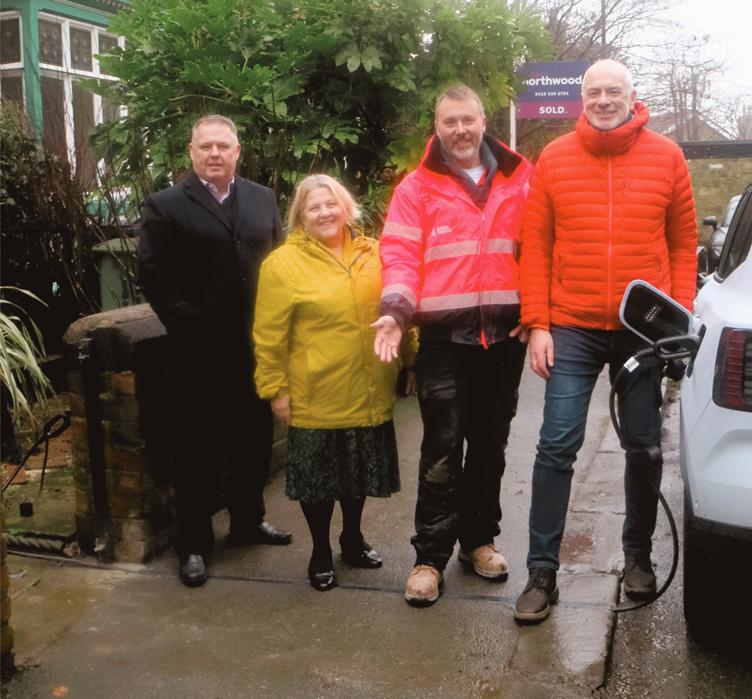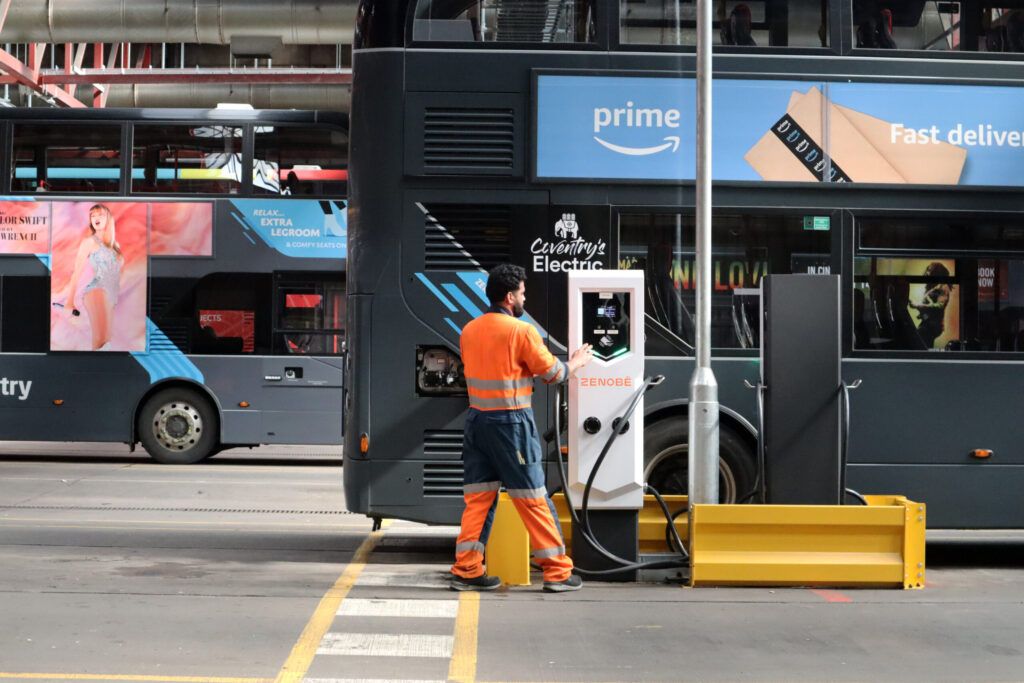Business leaders have warned the next wave of large-scale investments in the net zero transition are at risk without bold government policy.
According to a new report by the World Business Council for Sustainable Development (WBCSD) in partnership with Bain & Company, the Breakthrough Agenda and the Marrakech Partnership, some 91% of executives see the transition as an investment opportunity.
The study of 250 executives of leading businesses worldwide, with a combined market capitalisation of more than $2 trillion, also found only 1% believed the transition was “on track”.
It found that plans to halve emissions by 2030 hinged on private sector investment and three-quarters (74%) of businesses surveyed had increased their investments in the net zero transition over the past three years. One in three (35%) had also committed more than half of their capital investment.
But two thirds (66%) said the lack of a strong investment case and slow scale-up of infrastructure were the most urgent barriers to accelerate large-scale investment.
Businesses cite that macroeconomic challenges are delaying project development, with 50% inflation in plant capital expenditure costs and rising renewable energy prices, slow permitting processes, uncertain revenue models, limited low-carbon fuel supply, long grid interconnection queues and slow roll-out of charging networks; all putting the next set of investments needed to achieve net zero goals at risk.
Nine in ten (90%) of those surveyed said they would invest more if governments implemented policies to address sector-specific barriers. Business leaders also overwhelmingly (85%) say greater international coordination is highly important for the net zero transition, but only a quarter (25%) say it is currently effective. They point to the need for deeper and more effective coordination among major economies particularly on harmonized definitions and standards, demand mandates, fit-for-purpose international trade rules and cross-border infrastructure.
The report highlights how governments can unlock substantial private-sector investment by tackling market barriers to deploying low-carbon technology. Those surveyed said they were frustrated that government policies didn’t reward low-carbon investments.
The report looks at five key barriers – investment case, infrastructure, technology, supply constraints, and customer behaviour—and assesses businesses’ perspectives on whether the conditions are right for the pace and scale of investments required.
Peter Bakker, President and CEO of WBCSD said:
“This report is the first pulse-check on the net zero transition from a business perspective, offering a clear snapshot of where we stand and where we’re falling short. More importantly, it shows the critical gaps we need to close to make the net zero transition possible. Businesses are stepping up, but without decisive government action, we risk missing out on the unprecedented investment opportunities ahead.”
Cate Hight, Partner at Bain and Company said:
“Businesses and governments are certainly making progress. The technologies are available, and we see strong policy, including standards, subsidies and direct investment, in place in some geographies; these are putting wind in the sails of the investment case for energy transition. However, we’re not moving quickly enough. This year’s barometer is a clear message from business that additional policy support is crucial to set the market conditions necessary to enable a clear business case for adoption of lower carbon technologies, at scale, in this crucial decade.”
Gonzalo Muñoz, COP25 High Level Champion said:
“The Barometer highlights immense business opportunities in the net zero transition. We urge policymakers to act boldly and unlock the full potential of corporate investment at COP29.”
Christiana Figueres, Former Executive Secretary of the UNFCCC, said:
“The Business Breakthrough Barometer highlights enormous appetite from businesses to invest in the net zero transition alongside frustration that market structures are not yet effectively rewarding these investments. As governments approach the deadline to submit enhanced national climate plans to the UN, this is a wake up call for them to include the ambitious mandates that will help companies go faster”.
Nigel Topping, COP26 High Level Champion, said:
“We strongly endorse the Business Breakthrough Barometer’s call for investment-positive policies. Businesses are ready to scale net zero investments if governments ensure long-term stability.”
Paul Polman, Business leader, campaigner, co-author of “Net Positive” said:
“The Business Barometer is a wake up call from the private sector to government: the time for incremental change is over. Bold government policies are essential in building the investor confidence required to unlock the trillions of dollars to reduce emissions.
“Business leaders stand ready to lead, but without strong signals from government on climate plans and policy frameworks, we risk missing the critical window of action and investment needed now to ensure a liveable planet.”
Image from Shutterstock












